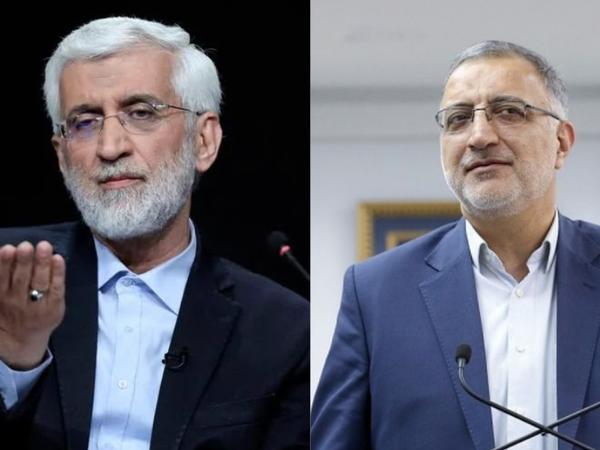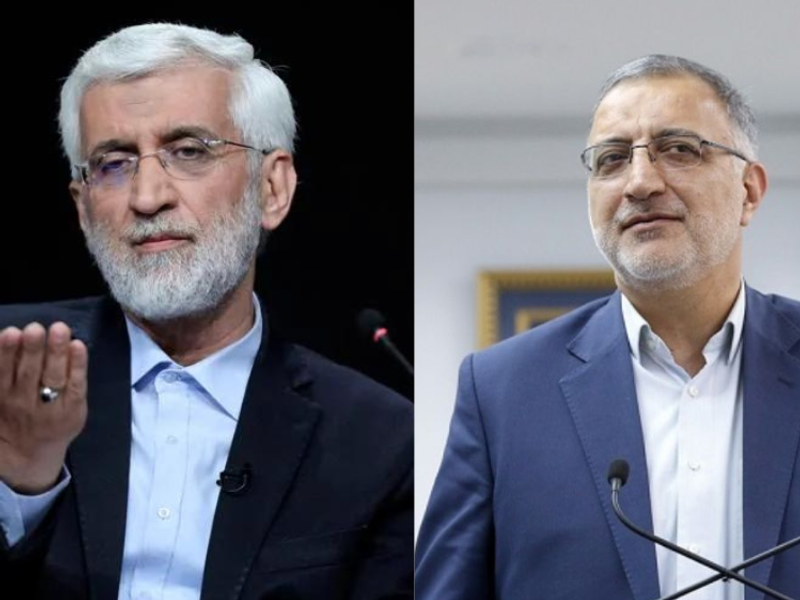As Masoud Pezeshkian was named Iran's next president, his presidential rivals sent messages of congratulations as the Supreme Leader called for government unity.
Presidential runner-up, Saeed Jalili, Iran's former nuclear negotiator and the ultraconservative contender, congratulated the incoming president. “As before, I consider it my duty to support the new government in overcoming challenges and achieving the nation's development goals,” Jalili stated.
Alireza Zakani, another former contender and Tehran Mayor also congratulated Pezeshkian and recognized the significance of the election as a “testament to religious democracy,” echoing Jalili’s comments and overall state line.
Zakani, who had earlier withdrawn from the race, urged government unity as news of the new cabinet awaits. He stated, "Now, I present all my plans, which have been written with the support of a large group of elites, to the elected president, and knowing the heavy burden of the government, it is expected that the elected president will choose a strong and capable cabinet."
Additionally, former President Hassan Rouhani, a notable supporter of Pezeshkian, extended his congratulations to the first reformist president to be elected in two decades. Rouhani underscored that the people's vote reflected a clear mandate for constructive engagement with the international community and a revival of the 2015 nuclear deal, formally known as the Joint Comprehensive Plan of Action (JCPOA), which was signed during Rouhani’s tenure.
He emphasized that the new administration "is not a continuation of previous administrations", refuting claims by other candidates that Pezeshkian’s government would simply continue his policies. He also highlighted the importance of addressing the concerns of those who abstained from voting, urging the new administration to work inclusively.
As Pezeshkian prepares to take office, he now faces the challenges of a nation grappling with an inflation rate of around 50% with its national currency, the rial, having depreciated 15-fold since 2018 driving millions of Iranians into poverty.
With sanctions causing around $1.2 trillion in damages from 2011 to 2023, experts argue another critical challenge for the newly elected president will be making strategic foreign policy decisions to lift US sanctions.
Amid widespread anti-Islamic Republic sentiment following Iran's 2022 nationwide Woman, Life, Freedom protests sparked by the death of Mahsa Amini in morality police custody, Pezeshkian must now address the country's human rights issues.
This is especially critical given the intensified crackdown on women's rights and mandatory hijab laws, directed by Supreme Leader Ali Khamenei, to whom Pezeshkian has consistently declared loyalty throughout his campaign.
Despite the significant role of the president, the ultimate power in Iran rests with Khamenei who holds authority over all branches of government, including the military and judiciary. Regardless of the president, his influence shapes the direction of the country’s domestic and foreign policies.

